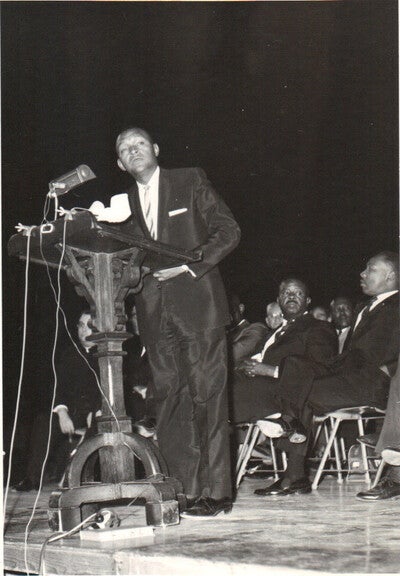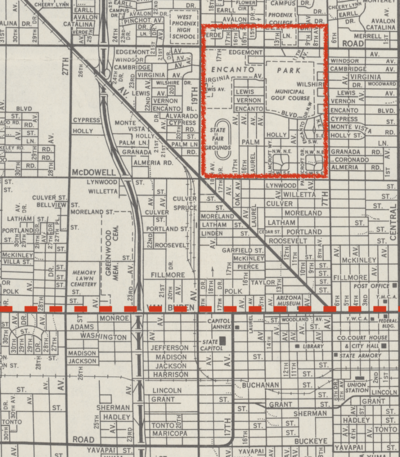One hundred years after the Emancipation Proclamation was signed into effect, America found itself at the heart of the Civil Rights Movement, fighting the legal, social, and cultural ramifications of slavery and racial discrimination. Though this executive order declared an end to slavery, African American lives were “still sadly crippled by the manacle of segregation and the chains of discrimination” (Martin Luther King, Jr., 1963).1 Gradually, with the leadership of courageous and unwavering individuals coming together for numerous demonstrations, prayers, and legal battles, true change began to take place at the state and local levels.
In honor of Black History Month, the Arizona State University Library would like to highlight the Lincoln Ragsdale Emancipation Proclamation Audio Recordings which have been made available for public listening via the Library’s digital repository. These audio tapes were first discovered in 2013 at a local Goodwill before they were brought to the ASU Library along with a speech given by Martin Luther King, Jr. at the university in 1964, marking the importance of the African American community in Arizona.2 Originally broadcast on Phoenix’s KCAC radio in 1963 and 1964, they capture commemorations of the 100th anniversary since the Emancipation Proclamation, featuring commentary from prominent Phoenix civil rights activists Lincoln and Eleanor Ragsdale.
At this time, Lincoln Ragsdale3 was the Vice President for the NAACP's Maricopa Chapter, retired Tuskegee airman at Luke Air Field, ASU alum, and Phoenix’s first black funeral home owner. His wife, Eleanor, helped him to found the Greater Phoenix Council for Civil Unity (GPCCU) and used her background as an educator and real estate agent to fight for civil rights in Arizona. They were pivotal to the desegregation of Phoenix schools (one year before Brown v. Board of Education), businesses, and housing - even taking it upon themselves to buy a house north of the “red line” in an all-white neighborhood. They organized a 700-person march which created more local jobs for African Americans and helped to end racial discrimination in public facilities.
In this audio recording, Lincoln Ragsdale describes the peaceful protests, or “angry demands and patient examples,” made at businesses such as El Rey Cafe and Woolworth, which led to real change for African Americans in Arizona. He also shares excerpts from Martin Luther King, Jr.’s speech and inspires others to take action by joining the NAACP and continuing to fight for equality. He notes that they have seen more positive change for African Americans in Phoenix in the last twelve months than they had in the past twelve years and urges listeners not to give up hope.
These recordings are part of the Greater Arizona Collection at ASU Library. For more information about Distinctive Collections at ASU Library, please feel free to visit our website or submit an inquiry to Ask an Archivist.
-Emily Pattni, Curation Specialist
1 To listen to more of MLK’s memorable speeches at pbs.org: https://www.pbs.org/weta/washingtonweek/blog-post/5-martin-luther-king-jr%E2%80%99s-most-memorable-speeches
2 Keeler, Sharon. (2014). Unknown recording of 1964 MLK speech at ASU discovered. ASU Now. https://asunow.asu.edu/content/unknown-recording-1964-mlk-speech-asu-discovered
3 Read more about Lincoln Ragsdale and the Civil Rights Movement in Phoenix in Blacks and Whites Together: Interracial Leadership in the Phoenix Civil Rights Movement (1991) by Mary Melcher published in the Journal of Arizona History, 32(2), 195–216. https://www.jstor.org/stable/41695873

